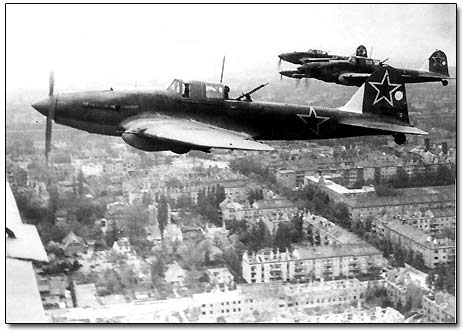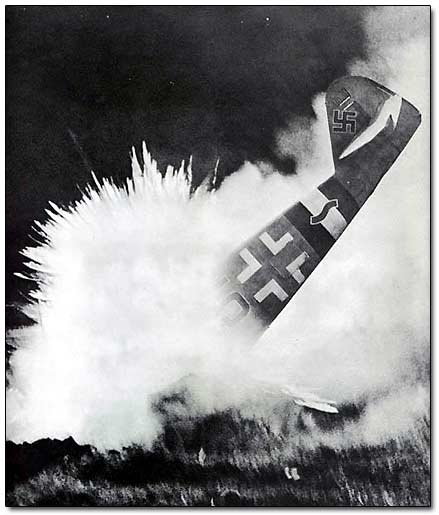World War II - Eastern Front
Early 1945
The Soviet Union finally entered Warsaw in January 1945, after it was destroyed and abandoned by the Germans. Over three days, on a broad front incorporating four army fronts, the Red Army began an offensive across the Narev River and from Warsaw.
Russian Soldiers Attack
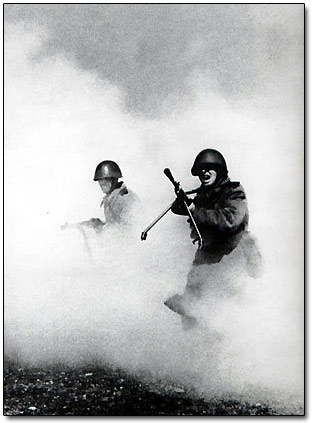
The Soviets outnumbered the Germans on average by nine to one in troops, ten to one in artillery, and ten to one in tanks and self-propelled artillery. After four days the Red Army broke out and started moving thirty to forty kilometers a day, taking the Baltic states, Danzig, East Prussia, Pozna, and drawing up on a line sixty kilometers east of Berlin along the Oder River.
A counterattack by the newly created Army Group Vistula, under the command of Reichsführer-SS Heinrich Himmler, had failed by February 24, and the Soviets drove on to Pomerania and cleared the right bank of the Oder River. In the south, three German attempts to relieve the encircled Budapest, capital of Hungary, failed and the city fell on February 13 to the Soviets.
Russian Motorized Infantry in Battle
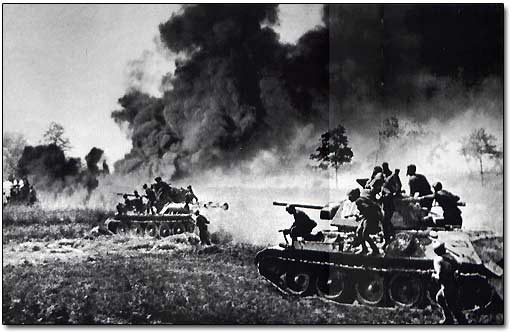
Again the Germans counterattacked, Hitler insisting on the impossible task of regaining the Danube River. By March 16 the attack had failed and the Red Army counterattacked the same day. On March 30 they entered Austria and captured Vienna on April 13.
On April 9, 1945, Königsberg finally fell to the Red Army, although the shattered remnants of Army Group North continued to resist on the Heiligenbeil and Danzig beachheads until the end of the war in Europe.
Captured German Soldiers: Lucky to be Alive
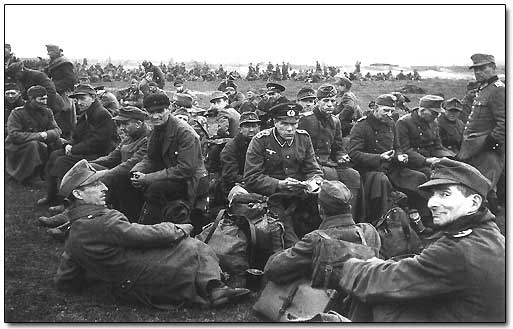
End of War: April - May 1945
All that was left for the Soviets to do was to launch an offensive to capture what was to become East Germany. The Soviet offensive had two objectives: 1) to be on a broad front and was to move as rapidly as possible to the west, 2) to meet the Western Allies as far west as possible. But the overriding objective was to capture Berlin. The two were complementary because possession of the zone could not be won quickly unless Berlin was taken. Another consideration was that Berlin itself held strategic assets, including Adolf Hitler and the German atomic bomb program.
Russian Assault Planes
